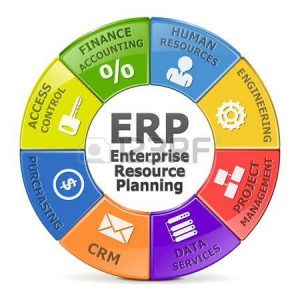Large and small businesses can greatly benefit from CRM, especially in areas where customer management is of huge concern.
The system considers the information from different departments then presents it cohesively to better serve the customers and clients. This outline explores the various types of CRM software solutions and system available to companies.
The analytical system
The analytical CRM system considers data from customers to come up with great marketing and sales strategies which are necessary for future sales. Information from all the databases will be considered, and by using techniques such as data mining, it’s easier to come up with trends and patterns. This is important for companies since it allows them to evaluate data from a different point of view in the creation of long term strategies for customer management and sales.
The collaborative system
The collaborative CRM system is not only useful in maintaining collaboration with stakeholders, but it is also important in making customer analysis. For any business to be successful, it needs to have a solid relationship with stakeholders, and they include local government bodies, governments, social marketing organizations, distributors, and vendors. The collaborative CRM play a huge role in managing collaborations between all stakeholders through sharing market information, business data, and customer information.
Organizations usually have interlinked departments. For example, Feedback can be obtained from the support call to improve the services of a customer set and also improve on the overall marketing strategy. The information on the price of a product by the client can then be transferred to the planning and finance department to redesign the price strategy to meet the need of customers.
Operational CRM
The operational CRM automates and integrates three fundamental business activities which include customer support (service), marketing, and sales. This is the reason why operational systems come with a dashboard that considers data from all the three activities of the company and customer. The operational CRM features three essential components, which include service automation, marketing automation, and sales automation.
Sales automation entails all the sales stages right from entering individual basic contact information to transforming such a person into a potential client. Additionally, it integrates retail outlets, call centers, and coordinates marketing activities. Also, there is the marketing automation which is focused on making marketing campaigns operational, effective, proficient, well organized, and easy. It provides the opportunity for businesses to implement marketing campaigns that are useful to customers.
Additionally, it’s easier to do marketing tasks repeatedly such as posting marketing activities on social media and sending marketing emails regularly. On the other hand, the service automation CRM is used to facilitate different customer’s needs so that they can receive better service which can be achieved through tracking codes, emails, SMS, helpline, and so on. If you learn about a CRM functionality, you are going to achieve an effective operational efficiency for your business.
Service automation
The service automation CRM is important given that it keeps all the records of the sales process at each stage. This, in turn, helps the employees to automate activities such as mailings, scheduling calls, and making reports.
Getting to understand the different types of CRM system will help you in easily identifying what you need for your business. There are different lines of business, and understanding each of the CRM systems will help you to move your business even further.

